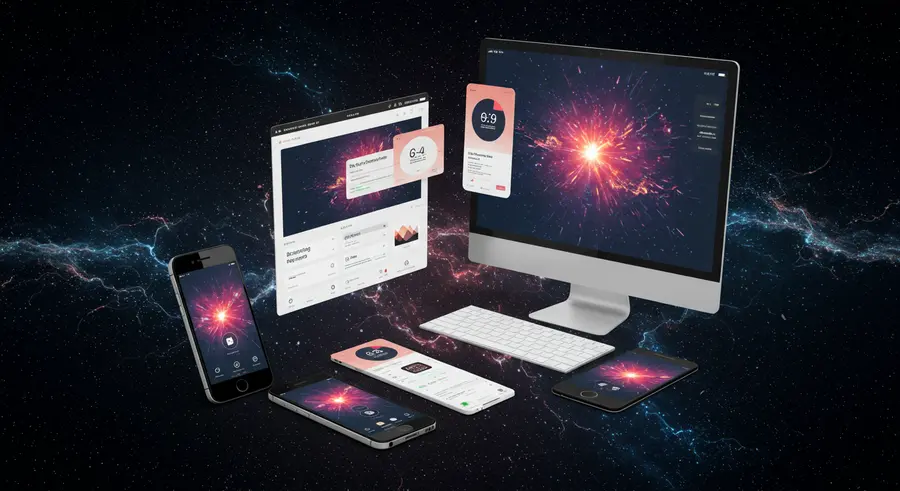Appearance

Welcome, tech innovators and digital enthusiasts! 👋 Today, we're diving deep into a technology that's not just a trend, but the very fabric of tomorrow's web: Progressive Web Apps (PWAs). If you've ever wondered how websites can feel as fast and feature-rich as native mobile apps, you're in the right place!
We've explored the foundational power of PWAs in a previous article, "The Power of Progressive Web Apps", and today, we're taking it a step further to peek into the future and understand why PWAs are becoming indispensable.
What Makes PWAs So Revolutionary? ✨
At their core, PWAs are websites that leverage modern web capabilities to deliver an app-like experience to users. Think of them as the best of both worlds: the broad reach of the web combined with the rich functionality of native applications.
Here’s why they're making waves:
- Blazing Fast Performance: No more staring at loading spinners! PWAs are designed for speed. Thanks to Service Workers, they can cache content, load instantly, and even work offline. Imagine checking your favorite news site on a subway with no signal – that's the PWA magic!
- Offline Accessibility: This is a game-changer! Service Workers act as a programmable proxy, intercepting network requests. This allows PWAs to offer reliable experiences even in flaky network conditions or completely offline, enhancing user retention significantly.
- App-like Experience: PWAs can be "installed" to your device's home screen, run in full-screen mode, and even send push notifications, just like a native app. They offer a seamless, immersive experience that keeps users engaged.
- Cost-Effectiveness: For businesses, this is huge. Instead of building separate native apps for iOS and Android, and a separate website, a single PWA codebase can serve all platforms, drastically reducing development and maintenance costs.
- Automatic Updates: Unlike native apps that require manual updates from app stores, PWAs update themselves automatically in the background, ensuring users always have the latest version without any effort.
- SEO Benefits: Because PWAs are essentially websites, they are discoverable by search engines, giving them an advantage in visibility compared to native apps hidden within app stores.
The Future is Now: PWA Trends in 2025 and Beyond 🚀
The evolution of PWAs is accelerating, with exciting trends shaping their future:
- Deeper Device Integration: Expect PWAs to tap into more native device features. We're already seeing capabilities like GPS, camera access, and biometric authentication. Soon, advanced features like Augmented Reality (AR) and Virtual Reality (VR) could become standard, blurring the lines between web and native even further.
- AI and Machine Learning Integration: Personalized experiences are key! PWAs will increasingly leverage AI and ML to offer hyper-personalized content, recommendations, and interfaces based on user behavior and preferences. Imagine an e-commerce PWA that knows exactly what you want before you even search for it!
- Enhanced Development Tooling: Tools like PWABuilder and PWA Studio are making it easier than ever for developers to build, test, and deploy PWAs across various platforms. The integration of technologies like Google's Bubblewrap simplifies packaging PWAs for distribution on app stores like Google Play, making cross-platform deployment more accessible.
- Reduced App Store Dependency: While PWAs can be listed on app stores, their core strength lies in direct web distribution. This empowers developers and businesses to reach users without the gatekeeping and fees associated with traditional app marketplaces.
- Offline-First Strategies: The focus on offline functionality will intensify. More PWAs will be designed with an "offline-first" mindset, ensuring core functionalities are always available, regardless of network connectivity.
Real-World Impact: Success Stories You Know 🌐
Many leading companies have already embraced PWAs and reaped significant benefits:
- Twitter Lite: Reduced data usage by 70% and increased tweets sent by 65%.
- Flipkart: Achieved a 3x increase in time spent on site and a 40% re-engagement rate.
- Uber: Launched a PWA for low-end devices, providing a quick and seamless booking experience.
These examples highlight the tangible impact PWAs can have on user engagement, performance, and business metrics.
Embrace the PWA Revolution! 💡
Progressive Web Apps are not just a temporary solution; they are a fundamental shift in how we build and experience web applications. They offer a powerful combination of speed, reliability, and engagement that rivals native apps, all while maintaining the accessibility and reach of the web.
As technology continues to evolve, PWAs will undoubtedly play a central role in shaping the digital experiences of tomorrow. So, whether you're a developer, a business owner, or simply a tech enthusiast, it's time to embrace the PWA revolution!
Stay curious, stay innovative, and keep building the future! ✨